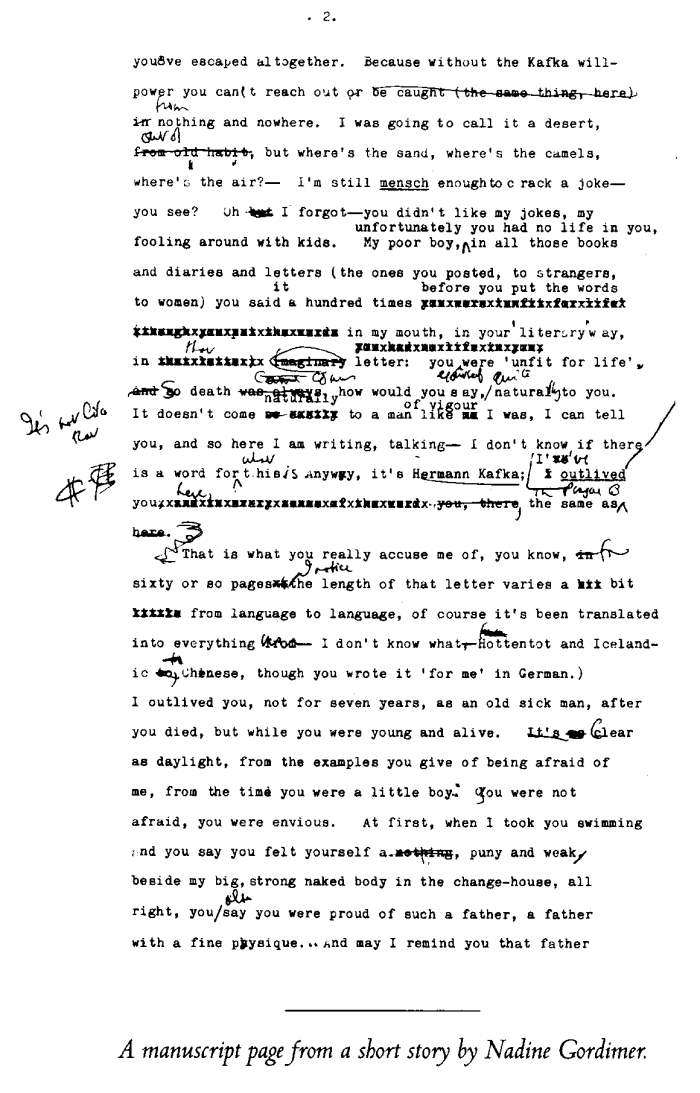 Timothy Seldes has died. He was 88 years old.
Timothy Seldes has died. He was 88 years old.
The New York Times reports that Seldes devoted four decades to a career as a literary agent. He represented several high-profile authors including Pulitzer Prize winner Anne Tyler, Nobel Prize winner Nadine Gordimer, and The Paris Review co-founder George Plimpton.
Here’s more from The Washington Post: “In 1972, he bought one of New York’s most prestigious literary agencies, Russell & Volkening, which was founded in 1940 by Diarmuid Russell and Henry Volkening. Over the next 40 years, Mr. Seldes kept the agency’s original name, even though he was its principal agent and sole owner. He specialized in high-end fiction and literary nonfiction, acquiring many books that became bestsellers and canonical works of literature.” (via The Hollywood Reporter)
At Powell's, we feel the holidays are the perfect time to share our love of books with those close to us. For this special blog series, we reached out to authors featured in our Holiday Gift Guide to learn about their own experiences with book giving during this bountiful time of year. Today's featured giver [...]
Nadine Gordimer has died at the age of 90, a significant age to reach, and yet, as always with the loss of a major figure (particularly one who stayed active and known) it feels like a robbery. We are greedy, we living people.
Writers satiate some of our greed against death by leaving us with their words. Gordimer's
oeuvre is large (she began publishing fiction in South Africa in the late 1940s), and her fiction in particular will live long past this moment of her body's death.
Because Gordimer was so active in the anti-apartheid struggle, and her writing so often addresses the situation in South Africa at the time of its writing, it is easy to fall into the trap of reducing her to a political writer and to ignore or downplay the artistry of her work. She sometimes encouraged this view in her essays and interviews, but she also understood that she was not a propagandist,
telling Jannika Hurwitt in 1979, "I am
not by nature a political creature, and even now there is so much I don’t like in politics, and in political people—though I admire tremendously people who are politically active—there’s so much lying to oneself, self-deception, there has to be—you don’t make a good political fighter unless you can pretend the warts aren’t there."
Gordimer is often contrasted (sometimes by she
herself) with the other white South African Nobel laureate, J.M. Coetzee. In that frame, Gordimer is the engaged realist, Coetzee the disengaged postmodernist. Like any caricature, this one contains some elements of truth, but it hides as much as it reveals. Though Gordimer had a bit more faith in the ability of words to represent immediate reality than Coetzee does, and was more comfortable participating in political arenas and writing about the recognizable here-and-now, both writers are strongly influenced by European high culture, particularly European Modernism — Kafka is a key influence for both, though Coetzee tends to wear that influence more obviously.
One of the qualities I value in Gordimer's work is her ability to show how people of different backgrounds and ideologies grapple with political ideas in their lives. She's often portrayed as an explicitly political writer because she writes about people embroiled in politics. In her best writing, she understood quite powerfully the difference between showing people engaged in politics and making her work into propaganda for a particular political line.
That's a wonder for me of a novel like
Burger's Daughter, which I wrote about here in 2009. It shows politics in life, politics as life. It is at times merciless toward characters who could be considered the ones a nice, liberal reader is supposed to feel sympathy and affection for. It never forgets Renoir's great line from
The Rules of the Game: "The awful thing about life is this: everyone has their reasons."
Gordimer's range is best demonstrated by her short stories, such as the parable-like
"Loot", which I wrote about in 2010. Especially in the later decades of her career, her stories frequently experimented with form, perspective, and subjectivity — which is not to discount the powerful effect of her many rich, detailed, fiercely realistic stories (her
Selected Stories from the mid-'70s remains a high point to me of her work).
The view of Gordimer as a writer of her times, for her times, limited to her times might try to prevail. That would be a shame. Though she certainly chronicled ways of living in South Africa throughout the last 60+ years, that specificity does not in any way make her work less important for us now. It is, rather, differently important — and as necessary as ever.

While snow has bucketed down across the Northern hemisphere, I’ve been fighting a duel today with my modem (Broadband doesn’t come easily in Africa!) and have only just managed to pick up all the ABBA news like Leslie’s lovely icy descriptions and Meg’s blog on the Big Outdoors and Elen’s notebook and the 100 odd emails on the books everyone got for Christmas. Sitting here barelegged and barefooted tapping away at these keys I feel about as out of touch and as isolated as being stranded in a snow-bound home.
So with the sweet smell of sliced watermelon wafting up from the breakfast table I’m wondering about how we as writers connect with where we live. Does growing up in a certain environment impact on our work? Are our taste buds for story set by certain idiom according to the landscape of our childhood?
I grew up before television in South Africa. The stories I knew came from movies, radio serials, from being read to, and listening to grown-up gossip while hidden under the table or slinking in doorways. Later I cut my teeth on Nadine Gordimer and writers like Carson McCullers… writers who have a strong sense of place. I don’t think it’s about an ability to describe landscape, but more about a landscape informing your characters. Annie Prouxl does it brilliantly. Her words fairly crackle with a sense of the people who live in a place at a certain time. Which perhaps mirrors what I think happens to all writers in reality. We write as we do because of our inner landscape and connection to place.
A sense of landscape is often perfectly reflected in short story because it’s so condensed – a small fragment that becomes real, important and compelling. The pleasure for me in reading Prouxl, is being completely caught up and utterly driven from line to line in a rush of impact, knowing that in a single sitting I can immerse myself entirely and give myself over completely to the story. Some novels manage this too… their characters informed by an immensely strong landscape… Cormack McCarthy’s ‘Road’, Rhys's ‘Wide Sargasso Sea’ and Tim Winton's ‘Breath’ I read in the same way, feeling literally at times that I had to come up for air.
I remember seeing the face of the Oklahoma bomber in a newspaper when I happened to be in the US at the time. He was staring silently out, caught in a maelstrom of people milling around him – police, crowds, photographers. In a short story ‘Face of a Killer’ I took this image and gave it to a mother opening the morning newspaper to find her terrorist son staring out at her in the last years of the ‘apartheid’ struggle in South Africa, when gunmen were shooting down people in churches in Cape Town and when Steve Biko lay naked and dying in the back of a van in winter on the 1000 Km journey to Johannesburg, while two policemen sat up front.
Another story ‘Coming of Age’ was written after spending Christmas in intensive care at the bedside of a friend. A young boy was brought in paralysed from the neck down after a diving accident on Christmas day. The gold tinselled Merry Christmas strung across the ceiling shivering in the air-conditioning, the tree at the entrance flecked with artificial snow, the florid red of the cannas in the dusty car park outside the window, and the tinny sound of Christmas carols did nothing to alleviate a sense of the unreal.
Now picking up your snow stories, how strange and unreal it is to be sitting here smelling sweet watermelon and breathing in the warm smell of sea and ‘fynbos’ which literally translates as ‘fine bush’ - the nat
 Timothy Seldes has died. He was 88 years old.
Timothy Seldes has died. He was 88 years old.





Diane, I'm a bit of a lurker here but I'm delurking joyously to celebrate that beautiful beach that I know so well and to thank you for sharing your photos. Plett is the scene of many my holidays home in South Africa and I love it dearly.
I find what you say about landscape and place so interesting, since as an expat writer I am so deeply attached to the landscape of home. It informs my writing, even when I don't write about South Africa because that ache of home is so acute to me, even 13 years after leaving.
Lovely post as ever, Dianne! (Now not only are we blue with cold here but also green with envy.
More truthfully, how happy you sound being there with your family. Thanks for these beautiful pictures that match your beautiful time. Though alas, poor yurt!
I'm envious too! Have a super time....thanks for lovely post.
It sounds like this winter is MUCH better than last. I'm glad. And jealous, a little, of the weather.
Great to have you lurking on the ABBA site Charlotte. Are you UK based? Thanks Penny, Adele, Ms Yingling... though I do feel a bit guilty when I hear some of you are being so prolific. Makes me panic a bit. Does it count if I work through the UK summer?
I came here because I "met" Elen elsewhere. I live in Germany, and am grateful every day of my life to the internet for keeping me in touch with English writers.